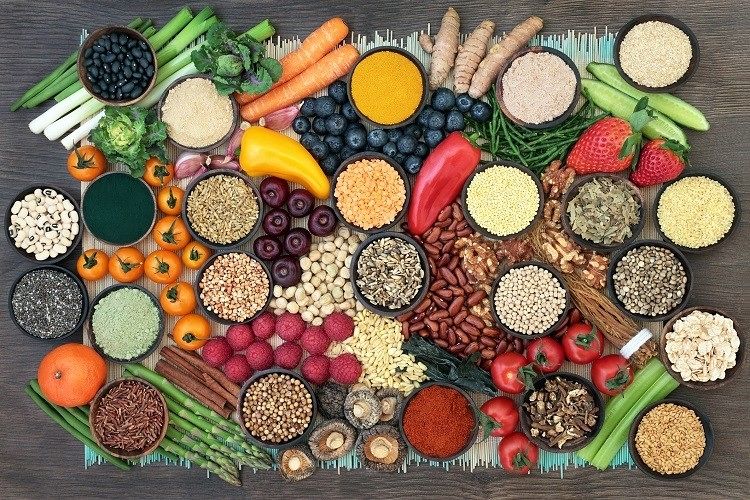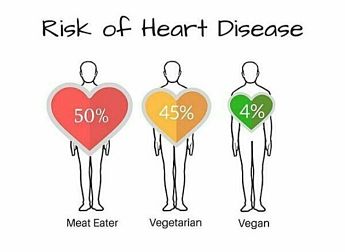Today Veganism is one of the biggest new trends for many years. The following article is proof of this:
“More of us than ever are going Vegan. But how does a plant-based diet actually affect the body and what are the pitfalls to look out for?
“There’s never been a better time to go vegan. With a host of new products on the shelves (ranging from the much lauded Impossible Burger to the Gregg’s vegan sausage roll), 2019 might go down as the year that plant-based diets went mainstream. A record 250,000 people signed up to this year’s Veganuary, more than in the previous four years combined.”

We need to be very conscious of what we are doing as not being aware could lead to a major health issue. With this in mind a closer look at mass production of vegan products is needed, and must be questioned is this really good for us?
This is where we must take care and ensure that we are eating fully balanced meals that are providing the needed fibres, calories and micro/ macronutrients that our bodies need to function correctly.
Many people joined the Vegan brigade in Jan 2019 Veganuary and many later reported on the struggles they encountered trying to maintain a Vegan diet. The advice from the Vegan society suggests that research of the nutrition side of things is one of the ways that one can transit successfully.

Increasing your intake of plant based foods on a step by step basis will give your gut the time to adjust to the benefits of increased fibre intake. An increase fluid intake is also imperative in assisting your body in the adjustment to a plant based diet. Seek out Vegan documentaries, books, magazines, websites, blogs, forums. Familiarise yourself with the preparation, often beans or nuts may need soaking for certain periods prior to use. Switch out milk for a non-dairy alternative such as almond or spelt. Pay attention to ingredient lists, continue educating yourself so that you’re as prepared as possible and you are not compromising your health.
The seven main essential plant nutrient elements that are a very small yet important in total less than 1% of the dry weight of most plants are defined as micronutrients (boron (B), zinc (Zn), manganese (Mn), iron (Fe), copper (Cu), molybdenum (Mo), chlorine (Cl)). The main problem we are facing here is the reduction in natural foods over the decades, due mainly to modern growing techniques. A report in August 2019, by a national newspaper stated the following:“The Department of Health recommends all children aged six months to five years are given vitamin supplements containing vitamins A, C and D every day, but 43 per cent of parents are unaware of which vitamins their children are advised to take.”
This demonstrates how worried even the government are about the lack of nutrition in today’s foods. A research on plant based diets and type2 diabetes concluded with:
“There is a general consensus that the elements of a whole-foods plant-based diet—legumes, whole grains, fruits, vegetables and nuts, with limited or no intake of refined foods and animal products—are highly beneficial for preventing and treating type 2 diabetes. Equally important, plant-based diets address the bigger picture for patients with diabetes by simultaneously treating cardiovascular disease”
(McMacken, Michelle, and Sapana Shah. “A plant-based diet for the prevention and treatment of type 2 diabetes.” Journal of geriatric cardiology : JGC vol. 14,5 (2017):

The following was published in a 2017 Critical Reviews in Food science and Nutrition:
“This comprehensive meta-analysis reports a significant protective effect of a vegetarian diet versus the incidence and/or mortality from ischemic heart disease (−25%) and incidence from total cancer (−8%). Vegan diet conferred a significant reduced risk (−15%) of incidence from total cancer”.
Monica Dinu, Rosanna Abbate, Gian Franco Gensini, Alessandro Casini & Francesco Sofi (2017) Vegetarian, Vegan diets and multiple health outcomes: A systematic review with meta-analysis of observational studies, Critical Reviews in Food Science and Nutrition,
The above heavily worded statement is confirmation of research that has been able to establish that a Vegan diet reduces the risk of cancer by 15%. So sticking to the Vegan diet that you have embarked on could have a significant positive effect on your quality of life. But we must remain conscious of where and how our foods are grown. Keep eating the colour’s of the rainbow. Your heart appreciates it.
We at LIVITY LIVING Life Natural follow an Alkaline Vegan diet and hold private courses to help get you started. Whether you live locally and can come in person or simply for a Skype consultation wherever you are reach out to us via email – ras.iword@livityliving.com or send a message via our contact page. Start making the changes your body needs and live a long healthy life.





